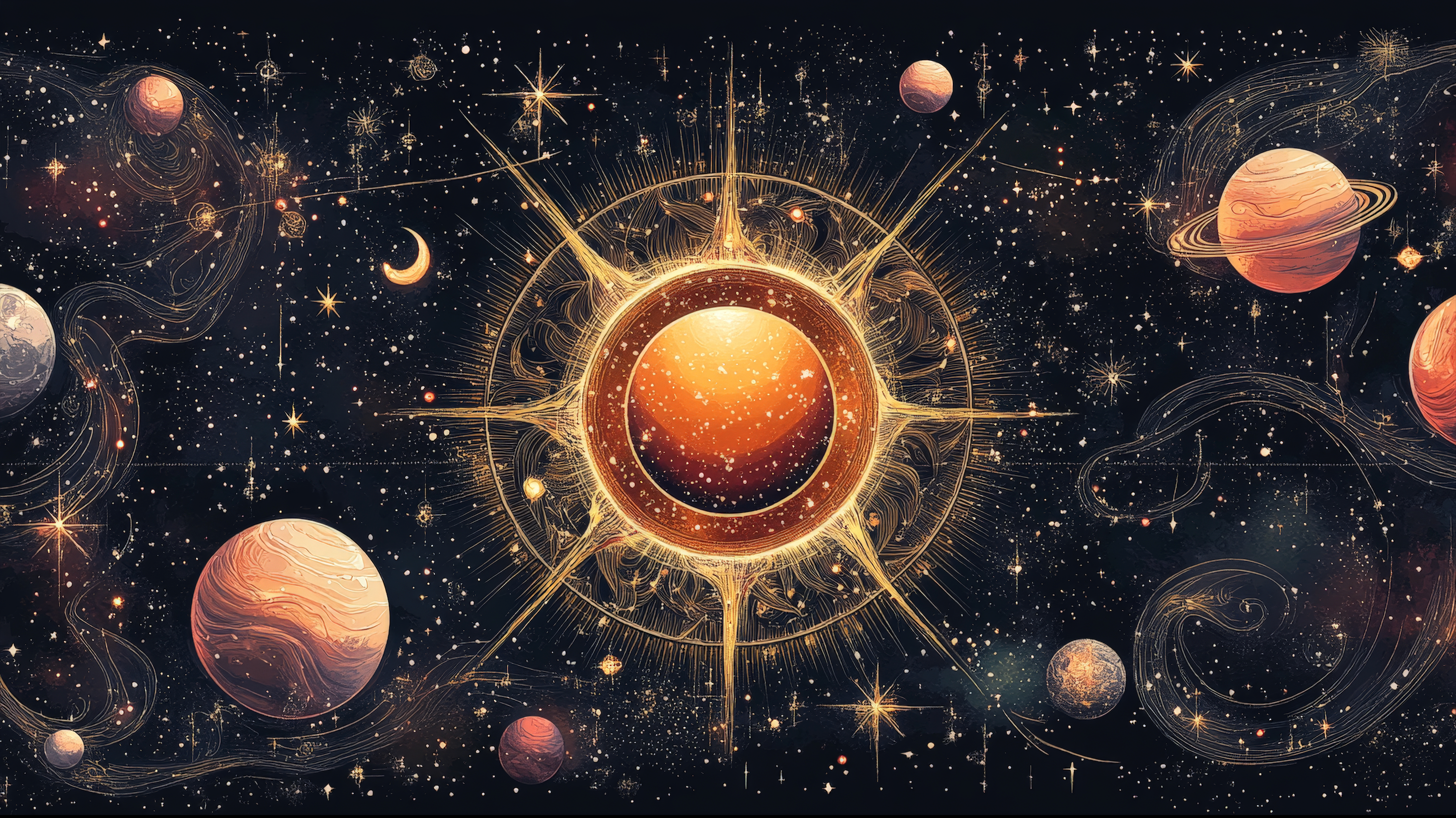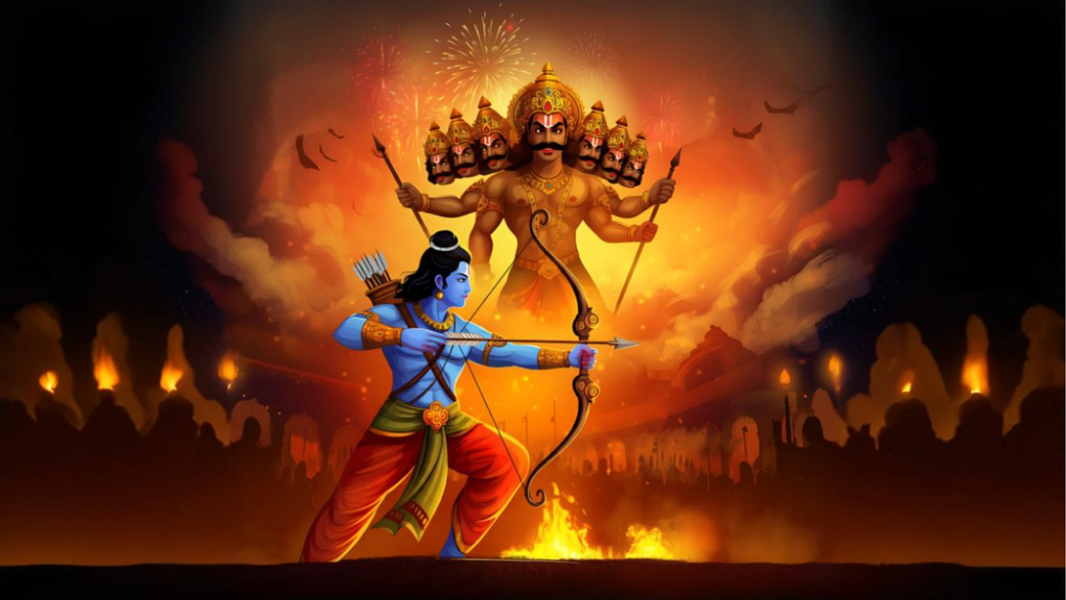Astrology has been a part of human culture for thousands of years, helping people understand themselves and the world around them by examining the positions of the stars and planets. Yet, despite its ancient roots and the growing popularity of horoscopes and birth charts, many misconceptions and myths persist about astrology. Some people dismiss it as pseudoscience, while others hold exaggerated beliefs about its powers.
In this blog, we will debunk five of the most common myths about astrology, shedding light on what it truly offers and what it doesn’t. By the end, you'll have a clearer understanding of astrology’s role and how it can be a helpful tool for self-reflection and personal growth.
Myth 1: Astrology is Just Your Sun Sign
When most people think of astrology, they immediately think of their Sun sign—the zodiac sign that corresponds to the position of the Sun at the time of their birth. For example, if you’re born between March 21 and April 19, you’re considered an Aries. Many people read horoscopes based on their Sun sign and often believe that astrology stops there.
However, astrology is much more nuanced than just the 12 Sun signs. While the Sun sign does play an important role in your astrological profile, it’s only one piece of a much larger puzzle. To gain a fuller understanding of astrology, you need to consider your entire birth chart or natal chart.
A birth chart is a map of where all the planets were in the sky at the exact time and location of your birth. It includes:
- Moon sign: Reflects your emotional nature and inner self.
- Rising sign (Ascendant): Represents how you project yourself to the world and how others perceive you.
- Mercury, Venus, Mars, and other planets: Each planet governs different aspects of your life, such as communication, love, career, and action.
In addition to planets, there are also the 12 astrological houses, which represent different areas of life (such as relationships, career, and home), and the aspects (angles) between planets, which further shape your personality and experiences. So, astrology is far more comprehensive than just your Sun sign; it’s a multi-layered system designed to provide insight into various facets of life.
Myth 2: Astrology Can Predict Your Future with Certainty
One of the most persistent myths about astrology is that it can predict the future with absolute certainty. People often seek out astrologers hoping for crystal-clear predictions about what will happen in their career, love life, or finances. This belief likely comes from how astrology is portrayed in popular media, where horoscopes often suggest exact outcomes like, "You will meet the love of your life today."
However, astrology is not about making definitive predictions; it’s more about recognising patterns and potentials. The planets influence energies, but they don’t dictate events. Astrology can show you periods when certain opportunities, challenges, or emotional states are more likely to occur, but it doesn't determine what will happen with 100% accuracy.
Think of astrology as a weather forecast for your life. Just like a weather report can tell you there’s a 70% chance of rain tomorrow, your birth chart and planetary transits can suggest that you’re entering a phase where you’re more likely to encounter relationship challenges, financial opportunities, or periods of introspection. How you respond to these influences, however, is entirely up to you.
Astrology encourages personal agency. It’s about making informed decisions based on the cosmic weather, not being a passive recipient of predetermined events.
Myth 3: Astrology is Anti-Science
Critics often dismiss astrology as "unscientific" because it doesn't fit within the strict methodologies of modern science. Many believe that because astrology can’t be proven by scientific experiments, it must be false or a form of superstition. However, this myth oversimplifies both science and astrology.
Astrology isn't meant to be a science in the traditional sense. It’s a symbolic language that interprets the relationships between celestial bodies and human experiences. Astrology is rooted in archetypes and patterns, rather than empirical measurements and tests. While it may not pass the standards of scientific inquiry, it serves a different purpose—offering insights, self-reflection, and guidance.
Moreover, astrology and science have not always been so separate. Historically, astrology and astronomy were intertwined. Ancient civilisations, such as the Babylonians, Greeks, and Egyptians, used astrology as a means of understanding the cosmos. Astrology laid the foundation for astronomy and the scientific study of the stars. Only in more recent centuries have the two fields diverged.
Today, astrology remains a tool for understanding symbolic relationships between humans and the universe, and many people find value in its insights—whether it’s scientifically validated or not. It’s important to see astrology for what it is: a reflective tool for personal exploration rather than a method for proving or disproving truths about the universe.
Myth 4: Astrology is a Form of Fortune Telling
Another common misconception is that astrology is akin to fortune telling, on par with psychic readings or tarot card predictions. While both astrology and fortune telling seek to provide guidance, they operate very differently.
Astrology is not about telling you specific future events or providing you with answers about exactly what’s going to happen in your life. It doesn’t predict that you’ll meet a tall, dark stranger next week or win the lottery tomorrow. Instead, astrology is a more holistic system that focuses on self-awareness and understanding your life’s rhythms and potential challenges or opportunities based on planetary cycles.
For example, if you’re going through a Saturn Return (which happens roughly between ages 28-30), an astrologer might suggest that this is a period of intense growth, responsibility, and maturity. However, they won’t be able to tell you exactly how these themes will manifest in your life. Astrology offers possibilities, not certainties.
So, while astrology can provide insight into likely trends in your life, it’s ultimately up to you how you navigate them. It is a tool for reflection and self-guidance, not a means of predicting detailed future events.
Myth 5: Astrology is Deterministic – It Controls Your Fate
One of the most damaging myths about astrology is the belief that it’s deterministic—meaning that the positions of the planets control your life and that you have no free will. This leads some people to feel that they are powerless in the face of their astrological chart, as if their fate is sealed by the stars.
Astrology, however, is not fatalistic. It does not rob you of your personal choice or agency. In fact, most modern astrologers emphasise the importance of free will and personal responsibility. The stars may guide you or provide insight into certain challenges, strengths, or patterns, but they don’t make decisions for you. You have the power to shape your life.
Think of astrology as a cosmic roadmap. It can show you potential routes, some smoother than others, and highlight certain periods that may be more favourable or challenging. But at the end of the day, you’re the driver. You choose the direction and speed at which you navigate your path.
Astrology provides guidance for personal growth, helping you understand how certain energies may influence your behaviour and interactions. But it’s important to remember that you are always in control of how you respond to those influences.
Conclusion
Astrology is a deeply rich and complex tool for self-discovery, but it is often misunderstood due to common myths. It’s much more than your Sun sign, far from being anti-science, and not meant to predict your future with certainty or control your fate. Instead, astrology offers an opportunity to understand the cosmic energies that shape different aspects of your life, helping you to navigate the challenges and opportunities ahead.
Rather than seeing astrology as a deterministic force, think of it as a symbolic language—one that helps you better understand yourself and the world around you. Whether you believe in it fully or are simply curious, astrology can serve as a guide for self-reflection and personal growth.
At Wewake, we believe in using astrology as a positive, empowering tool for understanding life’s bigger picture. If you're interested in exploring your own chart or learning more about what the stars may be signalling for you, our expert astrologers are here to help you on your journey.







